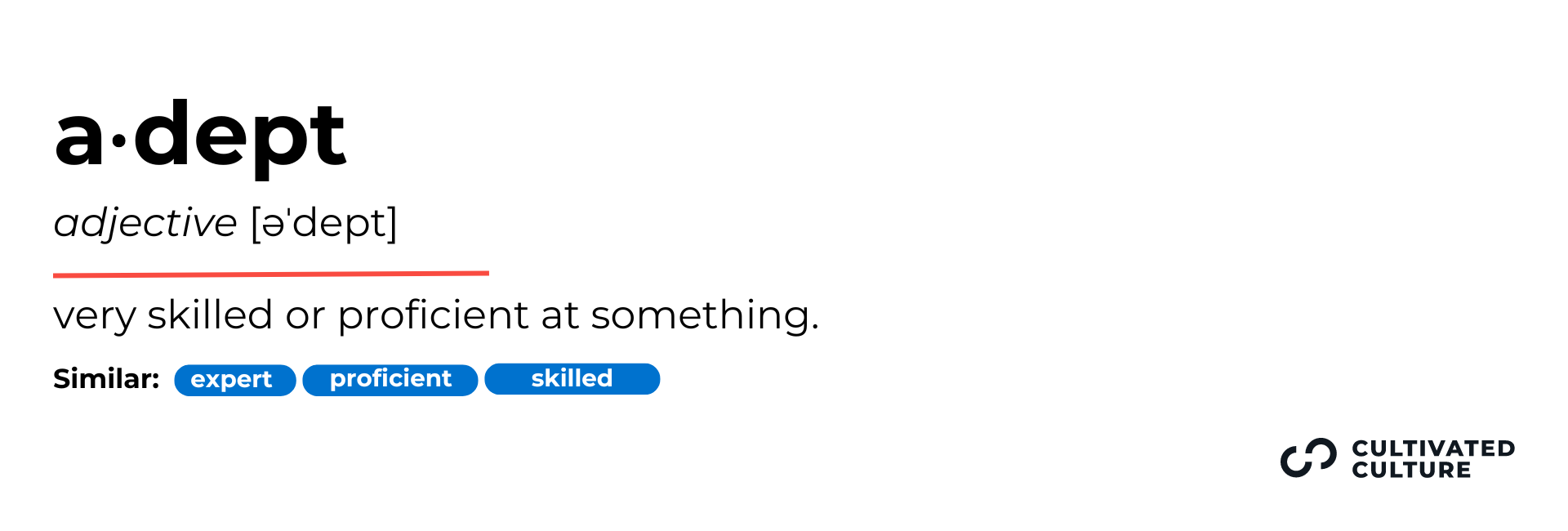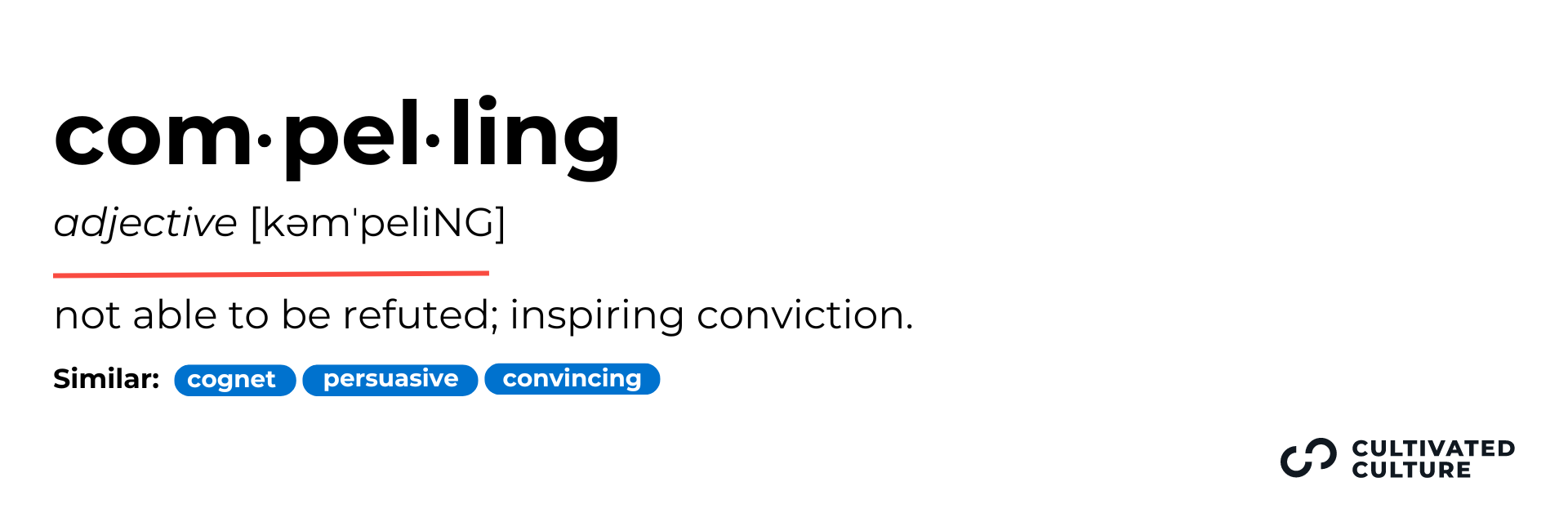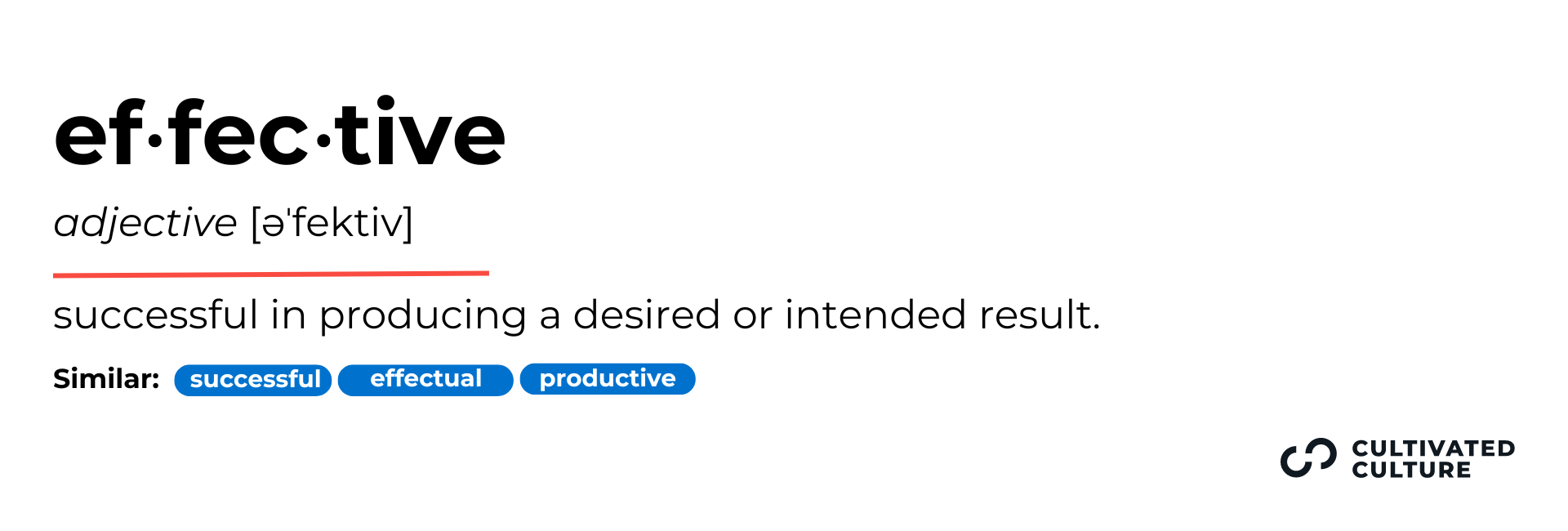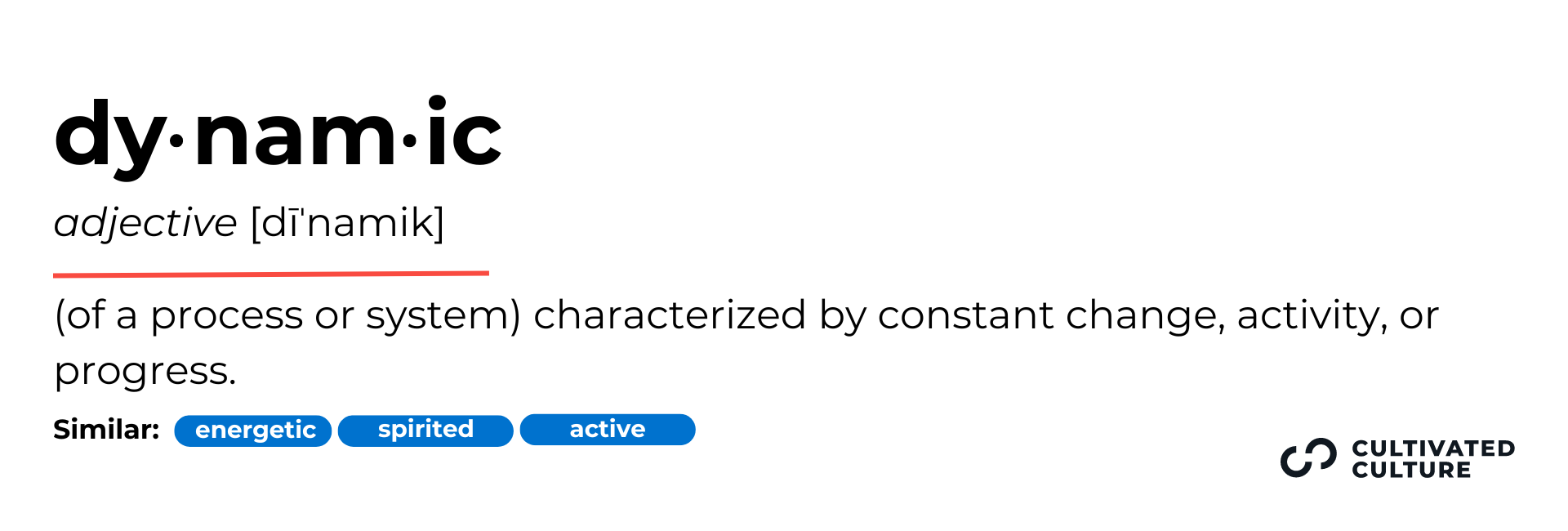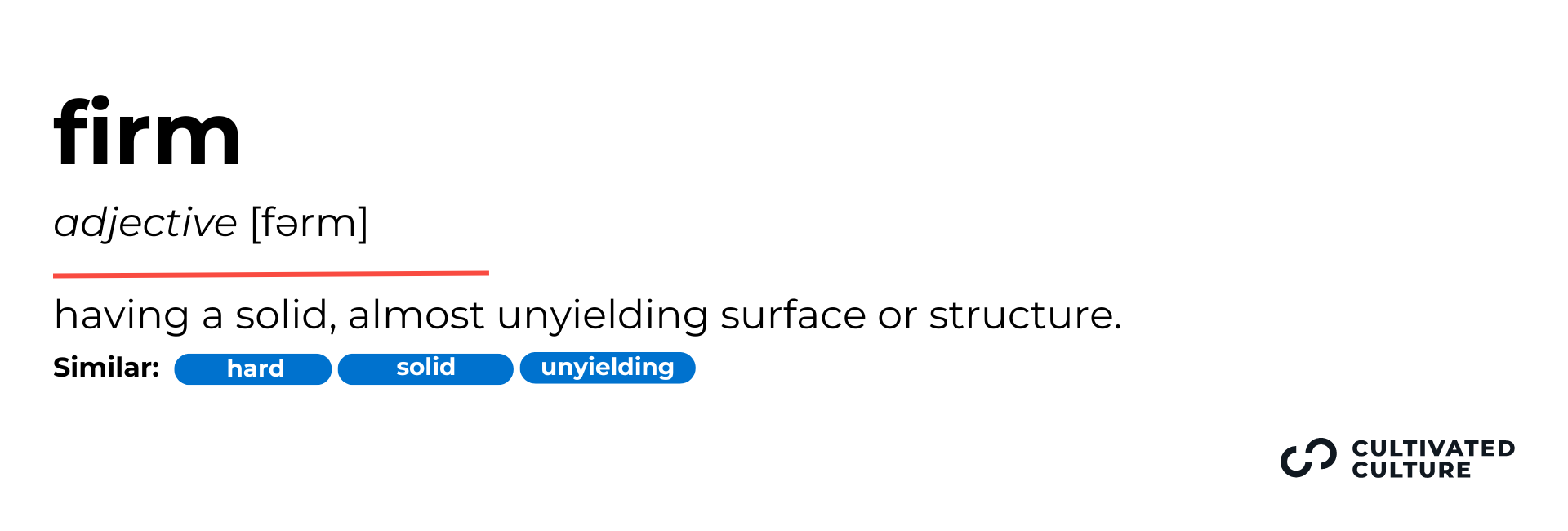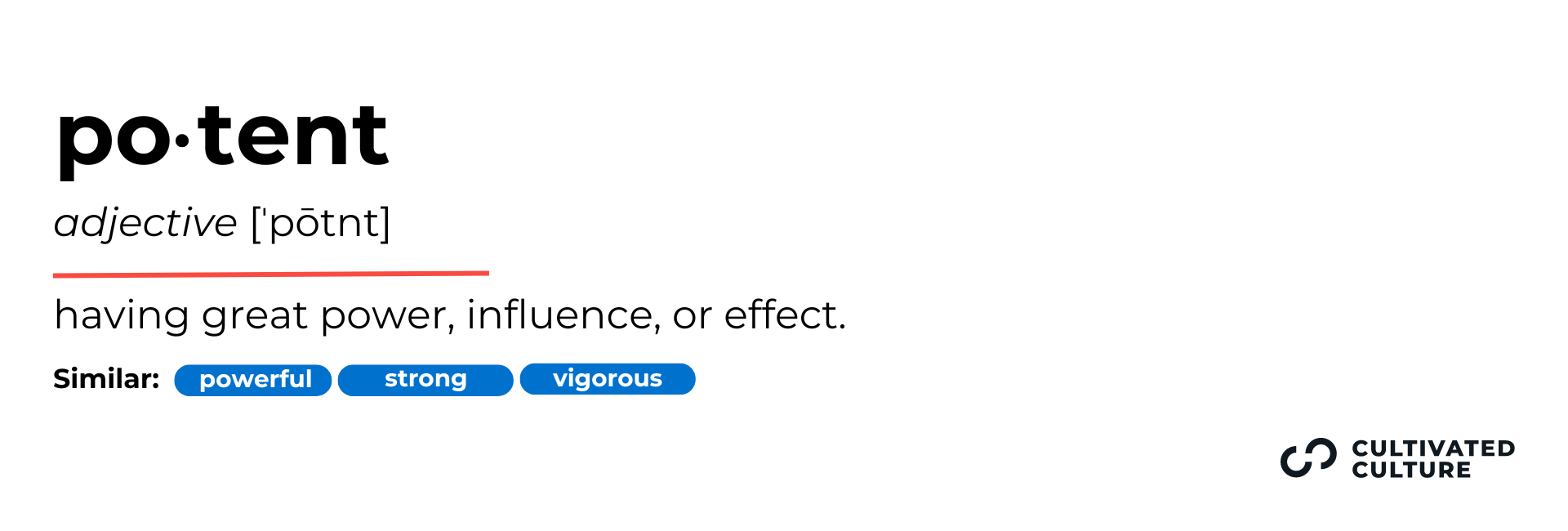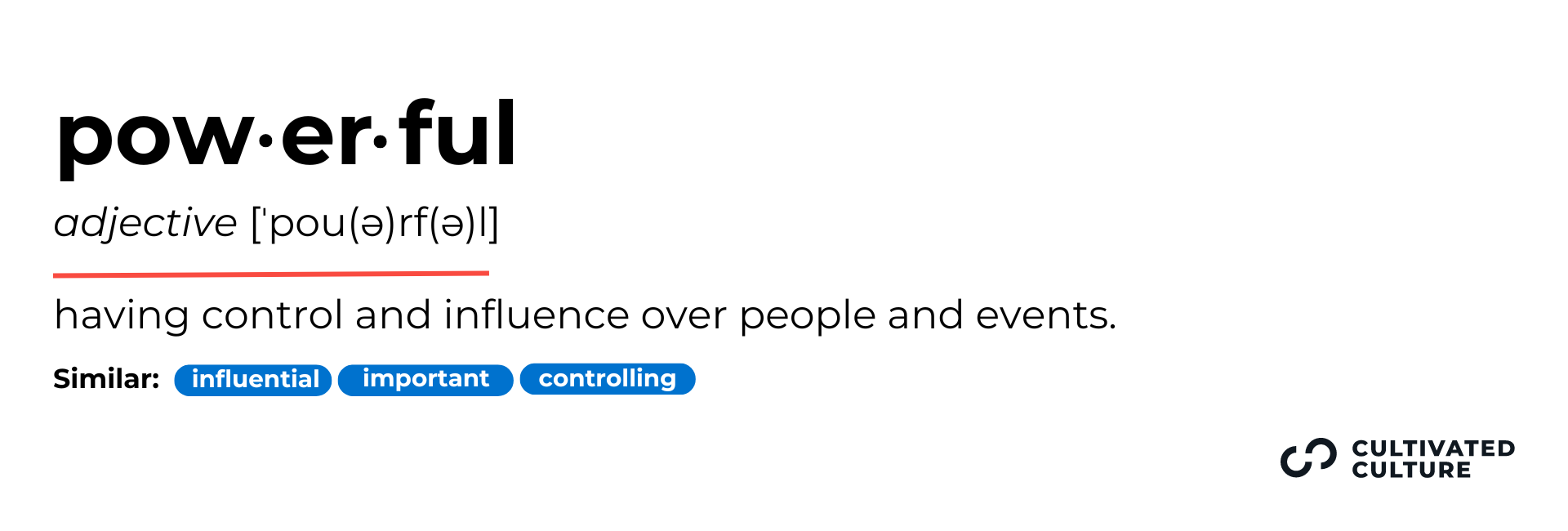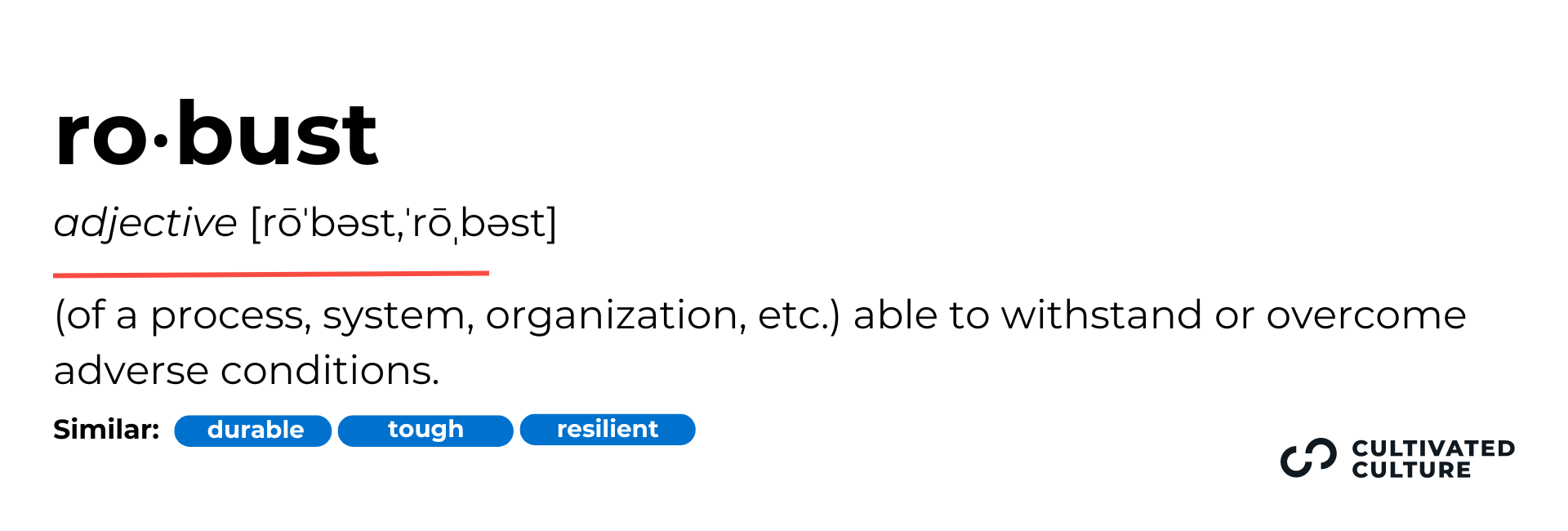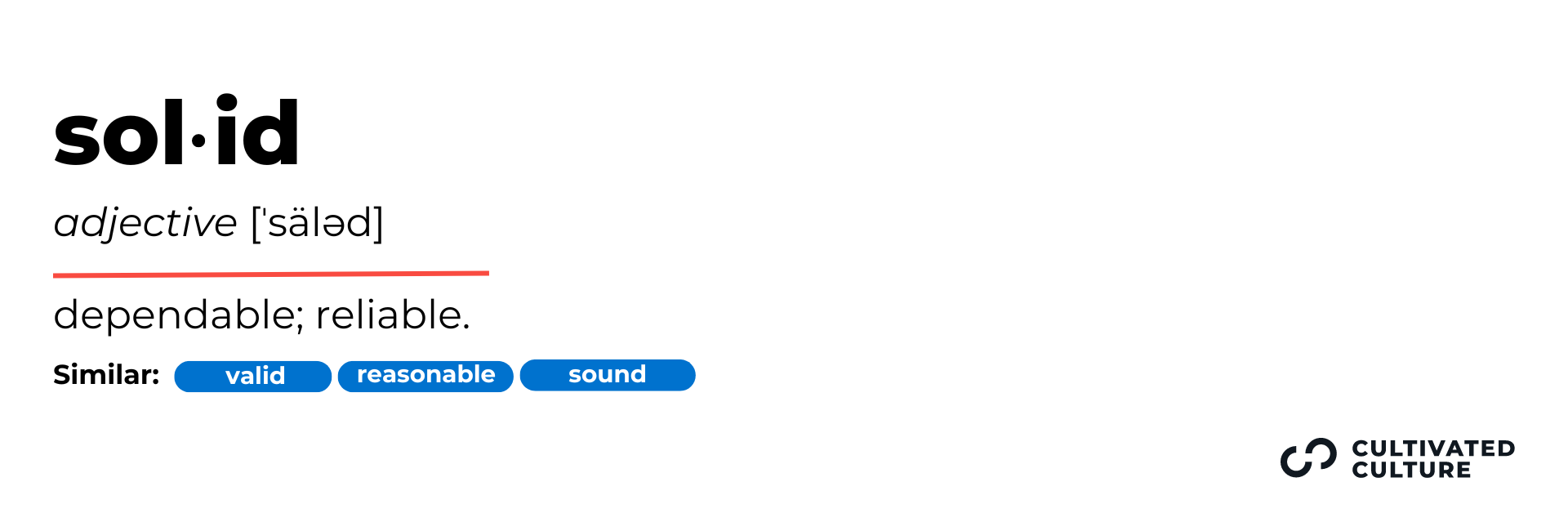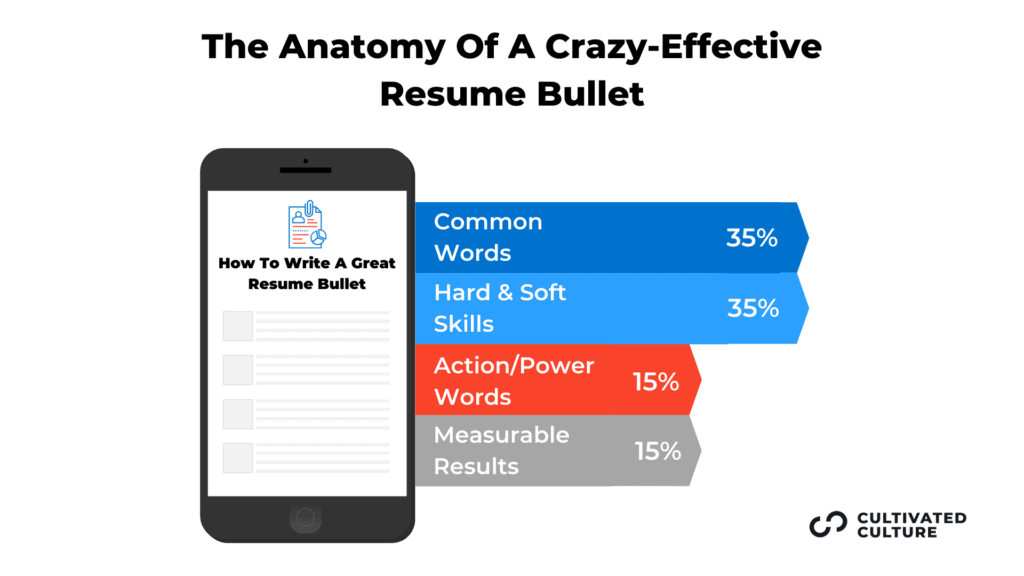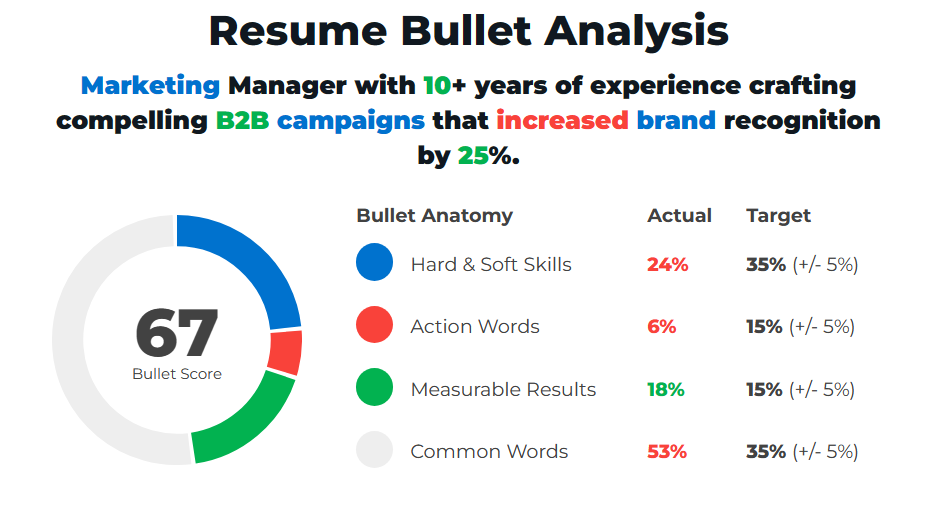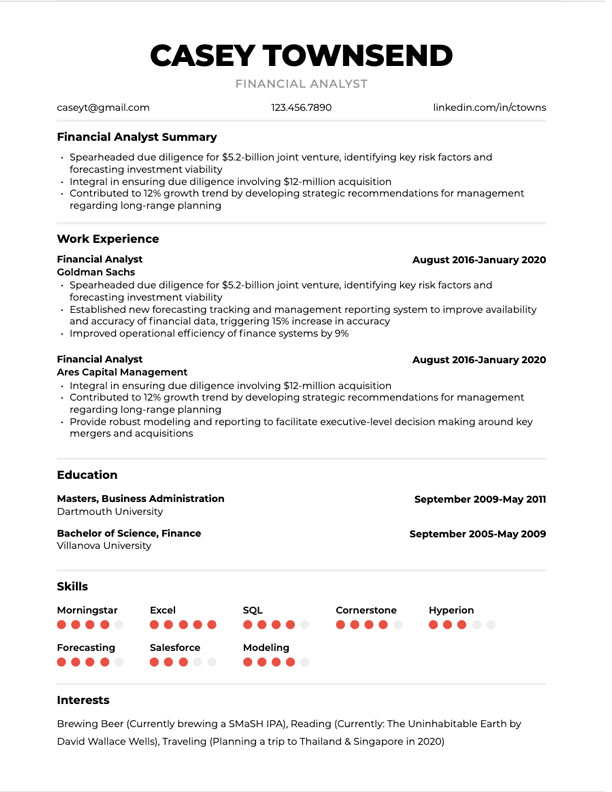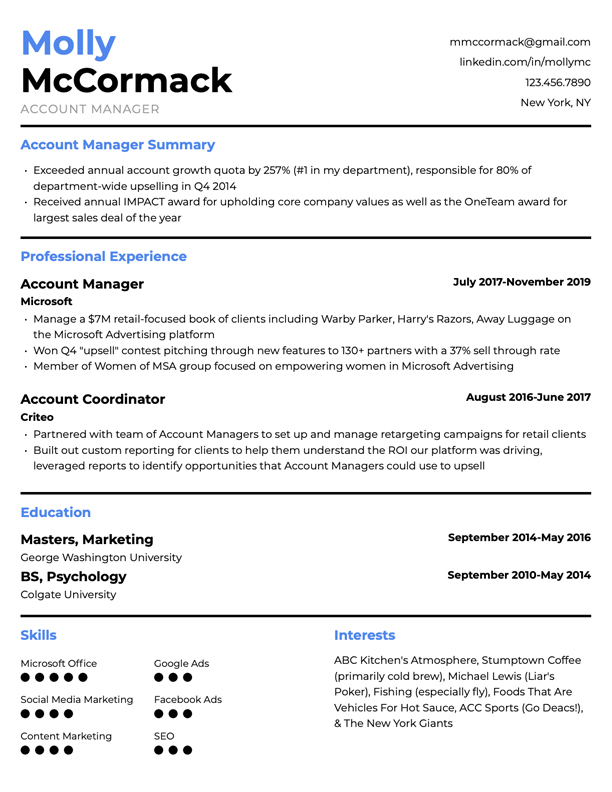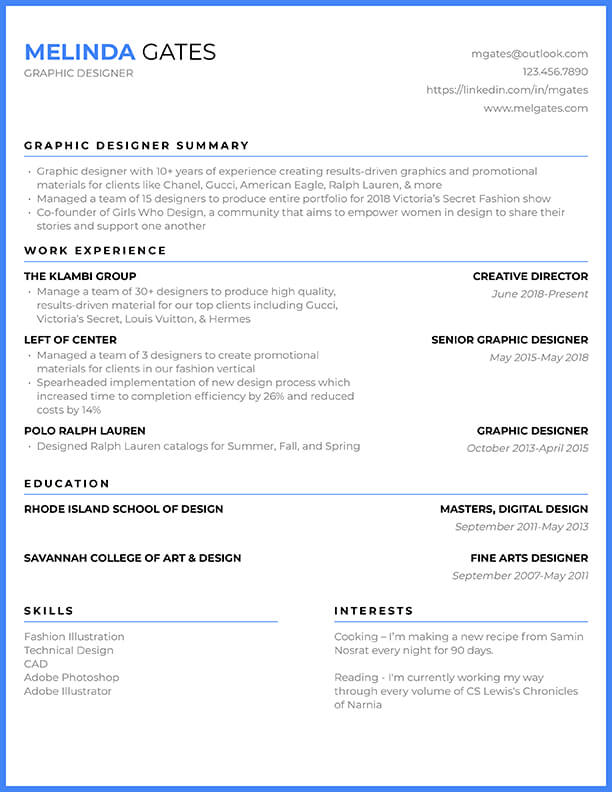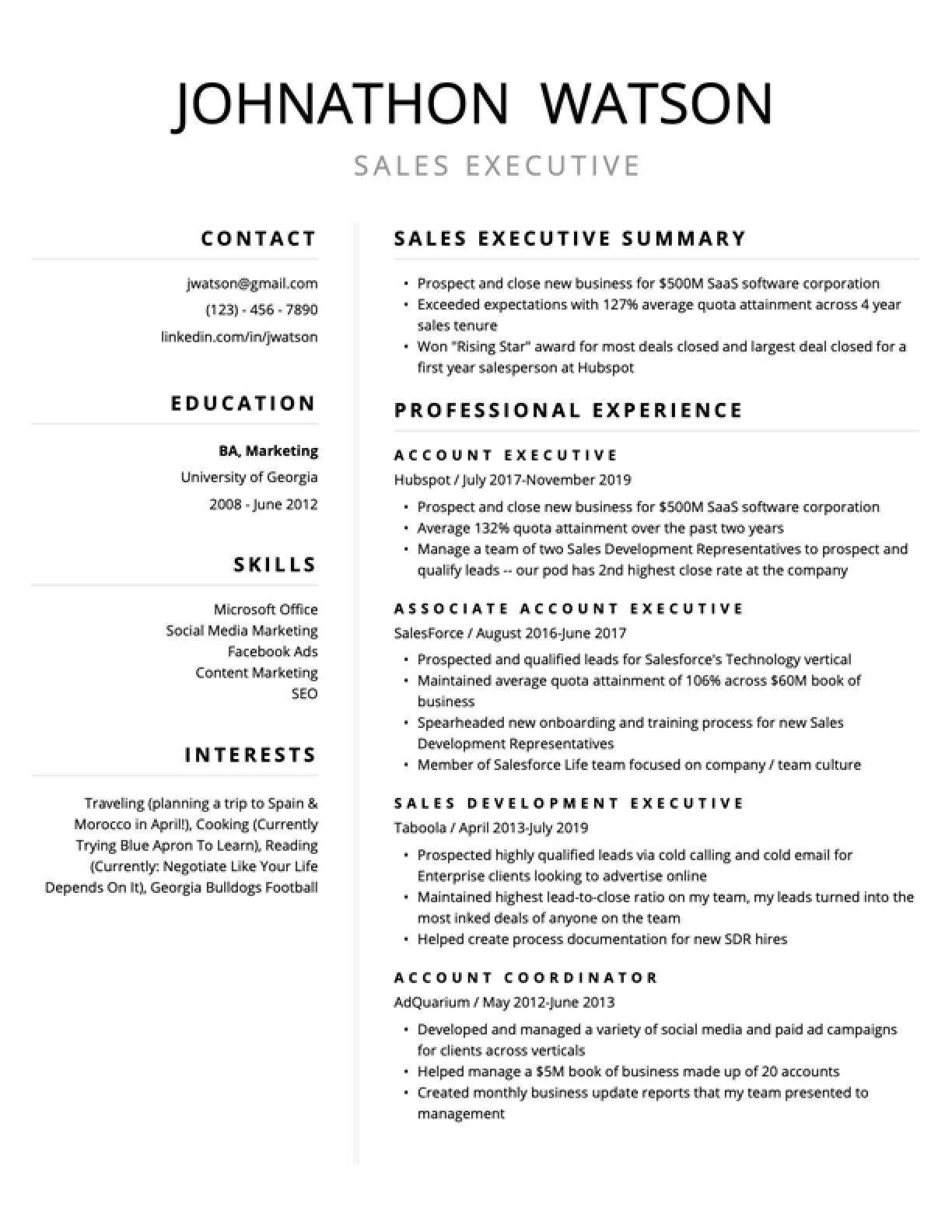Looking for “strong” synonyms to put in your resume?
Sometimes, it can feel like there is no better word than “strong” to fit a certain definition. You go with combinations like “strong understanding,” “strong knowledge,” and “strong leadership,”…
And, when you finish crafting your resume, you realize you might have gotten a little too carried away with that adjective.
Okay, so how can you find another word for “strong” that still communicates exactly what you want in your resume?
In this article, you'll find more than just a list of synonyms: you'll also find examples of how to phrase these words in each section of your resume.
At the end of this article, I'll share a secret tip on how to level up your resume writing.
You can read this piece from top to bottom or jump to the specific sections below:
- 10+ Synonyms For “Strong” To Put In Your Resume
- How To Use “Strong” Synonyms On Your Resume (With Examples)
- How To Take Your Resume Writing To The Next Level (With Free Resources!)
- Taking Your Resume To The Next Level: Final Steps
- Key Takeaways To Writing a Job-Winning Resume
Let's get started!
10+ Synonyms For “Strong” To Put In Your Resume
Below, you can find a list of 10 synonyms for “strong” to add to your resume:
1. Adept: Indicates a high level of skill or expertise in a particular area.
2. Assertive: Suggests confidence and decisiveness in stating one's opinions or needs.
3. Compelling: Emphasizes the power to influence or convince.
4. Effective: Implies success in achieving goals.
5. Dynamic: Indicates energy and being active or forceful in achieving goals.
6. Firm: Suggests determination in one's decisions or actions.
7. Potent: Implies having power, influence, or effect.
8. Powerful: Describes effectiveness and the ability to achieve significant impact.
9. Robust: Suggests durability and strength.
10. Solid: Implies reliability and a good foundation.
How To Use “Strong” Synonyms On Your Resume (With Examples)
Now that you've seen the top 10 synonyms for “strong,” here's how you can phrase them in a sentence:
-
-
Using “adept” as another word for “strong”:
-
You can use “adept” to highlight your skills and proficiency. Here's an example:
Using “strong”:
Software Engineer with 8+ years experience and strong proficiency in C# and .NET, increasing system performance by up to 40% through optimized code.
Using “adept”:
Software Engineer with 8+ years experience adept in C# and .NET, increasing system performance by 40% through optimized code.
Notice how, by using “adept” instead of “strong,” we're able to shorten the sentence. This can be a good strategy if you are looking to optimize characters.
-
-
Using “assertive” as another word for “strong”:
-
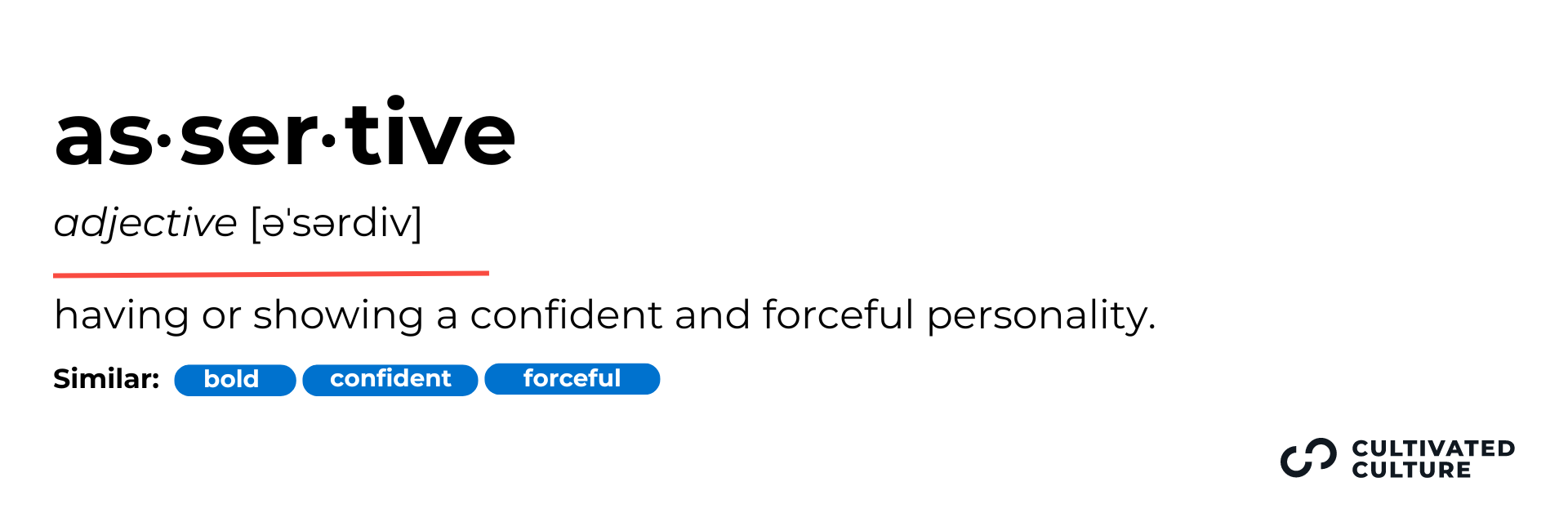
Using “strong”:
Managed a team of 15 account managers, driving 7-figure growth by assuming a strong leadership style.
Using “assertive”:
Managed a team of 15 account managers, driving 7-figure growth assuming an assertive leadership style.
Using “assertive” in this context will give a much better impression of your leadership style, as “strong” may possibly come across as too harsh.
“Compelling” can be a great choice of word when you want to highlight your ability to evoke interest and attention.
Using “strong”:
Developed a strong argument for market expansion, launching into three new markets and increasing revenue by 20% within the first year.
Using “compelling”:
Developed compelling argument for market expansion, launching into three new markets and increasing revenue by 20% within the first year.
When using “compelling,” you suggest persuasiveness — that's way more straightforward than “strong”!
-
-
Using “effective” as another word for “strong”:
-
“Effective” is a great synonym for “strong” when you want to state your success with a specific action.
Using “strong”:
Maintained strong communication with clients, achieving 95% satisfaction rating.
Using “effective”:
Maintained effective communication with clients achieving 95% satisfaction rating.
When using “effective,” you suggest you're able to communicate clearly and properly address issues and needs.
-
-
Using “dynamic” as another word for “strong”:
-
When using “dynamic,” you can either express a positive attitude or characterize change, activity, or progress.
Using “strong”:
Spearheaded a strong digital marketing campaign, increasing website traffic by 45%.
Using “dynamic”:
Spearheaded a dynamic digital marketing campaign, increasing website traffic by 45%.
In this context, “dynamic” implies adaptability and innovation.
-
-
Using “firm” as another word for “strong”:
-
“Firm” can be a great synonym for “strong” when you want to emphasize determination, consistency, and commitment.
Using “strong”:
Led a strong financial oversight initiative, cutting unnecessary expenditures by 30%.
Using “firm”:
Implemented firm financial oversight, cutting unnecessary expenditures by 30%.
In this context, “firm” suggests a rigorous approach, highlighting a great level of commitment.
-
-
Using “potent” as another word for “strong”:
-
Using “potent” can be a good approach when you want to emphasize the impact or effectiveness of an action or strategy.
Using “strong”:
Launched a strong social media strategy, enhancing brand visibility and boosting follower count by 60%.
Using “potent”:
Launched a potent social media strategy, engancing brand visibility and boosting follower count by 60%.
In this context, “potent” emphasizes the effectiveness and impact of an initiative.
-
-
Using “powerful” as another word for “strong”:
-
You can use “powerful” to emphasize the significant impact or force behind an action or strategy.
Using “strong”:
Developed a strong training program that improved employee productivity by 25%.
Using “powerful”:
Developed a powerful training program that improved employee productivity by 25%.
In this context, “powerful” can be a better choice of word because it conveys the idea of impact and substantial effect.
-
-
Using “robust” as another word for “strong”:
-
“Robust” can be used to highlight the durability, thoroughness, and/or well-developed nature of an action or strategy.
Using “strong”:
Engineered a strong cybersecurity protocol, reducing security breaches by 50%.
Using “robust”:
Engineered a robust cubersecurity protocol, reducing security breaches by 50%.
Using “robust” implies strength and comprehensiveness, suggesting efficiency and meticulous development to cover vulnerabilities.
-
Using “solid” as another word for “strong”:
“Solid” can be a great synonym for “strong” when you want to emphasize reliability, consistency, and a well-established foundation.
Using “strong”:
Developed a strong sales strategy, increasing quartely revenues by 30%.
Using “solid”:
Developed a solid sales strategy, increasing quartely revenues by 30%.
In this context, “solid” implies strength and reliability!
Want To Take Your Resume Writing To The Next Level?
Writing a resume isn't just about listing your work experience, education, and skills. You need to sell it!
This means you'll need to craft compelling resume bullets that really grab the recruiters' attention.
Sure, you could go with something like: Marketing Manager with 10+ years of experience.
Or, you could go with something like this:
Marketing Manager with 10+ years of experience crafting compelling B2B campaigns that increased brand recognition by 25%.
Much better, right?
That's because I used a secret formula that includes a reasonable amount of hard and soft skills, action words, measurable results, and common words:
You can use ResyBullet.io to scan, score, and upgrade your resume bullets in a few seconds. Here's what I scored for the resume bullet above:
To scan and improve your resume bullet, simply head over to ResyBullet.io or copy and paste your resume bullet below:
Aim at a >60 score, and you'll be good to go!
Not sure what metrics to include in your resume? This post from Austin's LinkedIn brings 5 ways you can uncover metrics for any role:
To recap, here's a video that walks through the entire process of writing a job-winning resume bullet:
Taking Your Resume To The Next Level: Final Steps
Finding the right words for your resume can go a long way when you're applying online. Not only do you want to use compelling language, but you also want your resume to get past ATS filters. To do this, you'll need to match the keywords in your resume with the ones in the target job description.
The best way to do this is by using a resume scanner like ResyMatch.io to scan and score your resume with your target job in just a few clicks. Simply upload your resume and paste the job description below:
If you're a visual learner, here's a video walking through the entire process so you can follow along:
After you've optimized your resume with the right keywords, how about ramping it up with a job-winning resume template? Pick one of the templates below from ResyBuild.io to get started:

Free Job-Winning Resume Templates, Build Yours In No Time.
Choose a resume template below to get started:
Key Takeaways To Writing a Job-Winning Resume
Now that we've gone through the best synonyms for “strong” to put in your resume, here are my final takeaways for writing a job-winning resume:
- Review every instance of “strong” in your resume
- Review the list of synonyms in this article and update your resume so you don't have more than 2-3 instances of “strong”
- Run each of your resume bullets through ResyBullet.io and make sure they score >60
- Run your entire resume through ResyMatch.io and make sure it's optimized for the roles you are targeting
- Ramp up your resume with one of our job-winning resume templates from ResyBuild.io
Follow these steps, and you'll surly end with a job-winning resume!
Good luck out there!


















